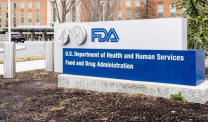Study: Risk of Stroke, Cardiovascular Disease Increases with Asbestos Exposure
Asbestos Exposure & BansWritten by Tim Povtak | Edited By Walter Pacheco

It is well established that the inhalation of toxic asbestos fibers can lead to asbestosis, mesothelioma cancer, lung cancer and a variety of other respiratory issues.
Now there is cardiovascular disease and stroke to worry about, too.
A study published earlier this week in Britain’s Journal of Occupational and Environmental Medicine has linked asbestos exposure to an increased risk of heart disease because of its inflammatory properties.
The study, performed by England’s Health and Safety Laboratory, involved occupational exposure in Great Britain’s asbestos industry from 1971 to 2005.
It included 98,912 workers, with the men coming mostly from asbestos-abatement jobs, while most of the women came from manufacturing jobs where asbestos was present.
The study, which included a 19-year median follow-up, discovered that the cardiovascular risk was even more dangerous for women than for men. There were 15,557 deaths from all causes analyzed during the study period.
Compared with the general population, men exposed to asbestos were 63 percent more likely to die from a stroke and 39 percent more likely to die from heart disease. Women exposed to asbestos were 100 and 89 percent more likely to die from stroke and heart disease, respectively.
“These findings provide some evidence that occupational exposure to asbestos was associated with cardiovascular disease mortality in this group of workers,” concluded Anne-Helen Harding, Ph.D., who headed the study. “Asbestos is an inflammatory agent, and there is evidence that inflammatory processes are involved in the development of cardiovascular disease.”
For more than 70 years, studies have shown the toxicity of asbestos. But restrictions on its use were slow to evolve because the naturally-occurring mineral had become so valuable for its heat resistance, flexibility and affordability.
Mesothelioma, the most serious of the health problems it can cause, also has such a lengthy latency period (10 to 50 years) that the pressure to ban its use was slow to materialize.
It wasn’t until the early 1980s that its use started declining rapidly. Although it is banned in more than 50 countries today, it remains legal in the United States.
Mesothelioma is a rare cancer that primarily effects the thin lining around the lungs or the lining around the abdominal cavity. Because early symptoms often mimic those of less serious illnesses, it often is not detected until it has spread, which usually make the prognosis poor. There is no cure.
It is estimated that 10,000 people in the United States die each year from an asbestos-related disease, yet only 30 to 40 percent of those are from mesothelioma or asbestosis.
In recent years, more medical professionals have linked it to a wider variety of cancers, including colon, kidney, and GI cancers.






